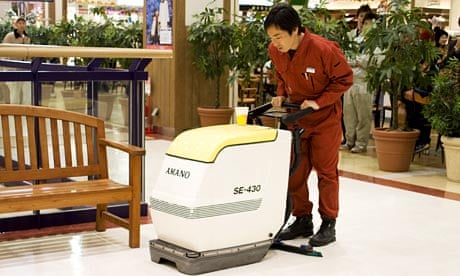The young Japanese director Kiyoshi Kurosawa (no kin to the great Akira) is best known for smart horror movies involving modern technology. Tokyo Sonata, however, his most engaging film to date, is a contribution to the cinema of redundancy and social marginalisation that has been going on for some time now and was known here in the 1980s as the cinema of Thatcher's Britain.
It has strong echoes of The Full Monty, Billy Elliot and Laurent Cantet's L'Emploi du temps in its tale of Sasaki, a 46-year-old Japanese businessman who loses his job when his department is outsourced to China. He can't tell his wife, and when she sees him queuing at a soup kitchen with a redundant friend, both in business suits, briefcases in hand, she conceals her knowledge to save him losing face. When his younger son wants to take piano lessons, impecunious Dad refuses on the grounds that it's a frivolous activity. When the lad uses his lunch money to pay for them, Sasaki gets violent. Meanwhile, his elder son, faced with unemployment, volunteers for the US Army and is posted to Iraq.
This delicately acted movie steers a course between tragedy (two of the characters commit suicide) and black comedy (the strategies and humiliations of deception). Towards the end, it appears to be veering more towards the former. But at a crucial point it takes the Billy Elliot option. In a sublime scene the mother and father attend a performance of Debussy's Claire de lune by the younger son at a Tokyo conservatoire. The effect is moving and untriumphalist.
